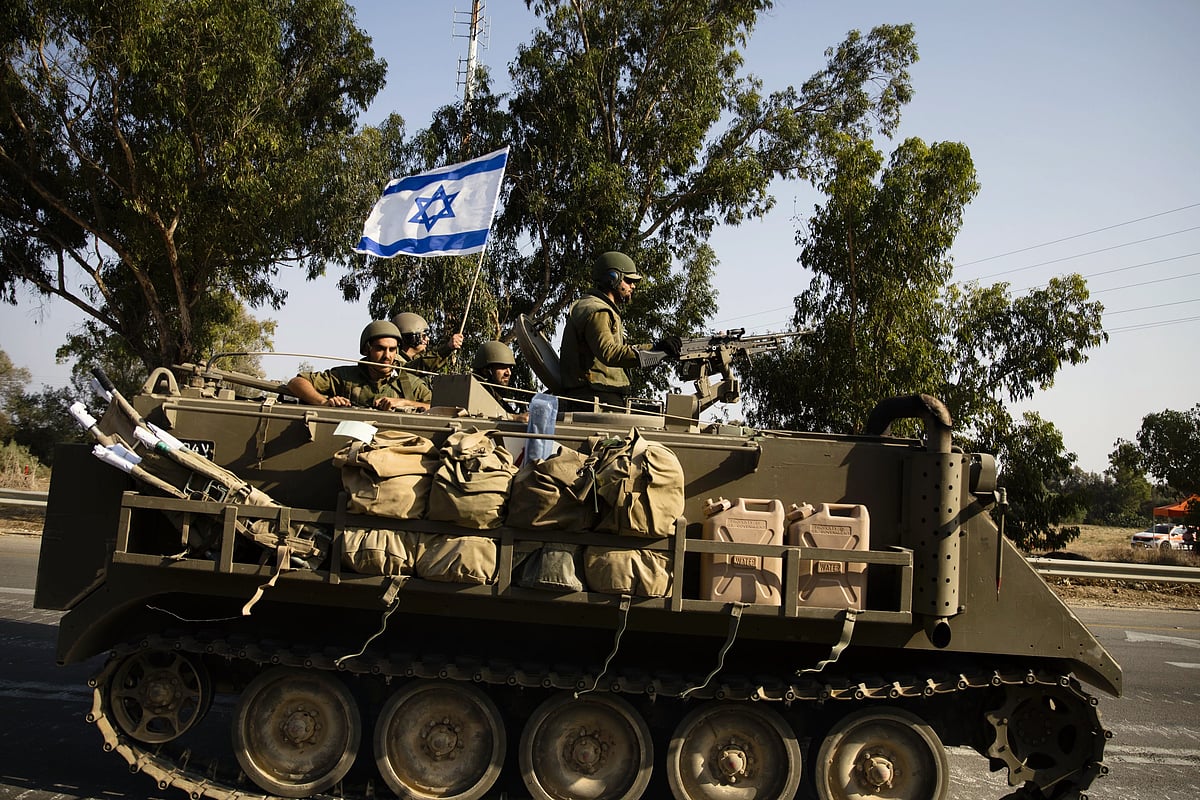India, the abstainer: Making sense of India’s abstention in the UN since 2014
In its explanation on voting, India justified its abstention from voting for the UNGA resolution for an immediate humanitarian ‘truce’ in Palestine by saying that terrorism knows no borders

In the United Nations General Assembly, India abstained from voting in favour of the resolution calling for an immediate ceasefire in Gaza, but significantly backed a Canadian resolution that named Hamas for unleashing terror in Israel. The Canadian resolution failed to garner the required support of two-thirds of the members and fell through. The Jordanian resolution, which named neither Hamas nor Israel, was adopted, with 120 countries supporting it.
India, which claimed self-appointed leadership of the Global South at the G20 summit in New Delhi last month, found itself abandoned by the Global South in the General Assembly and effectively isolated. Every neighbouring country voted in favour of the resolution, including Bhutan, which, by India’s logic, would appear to be supportive of terror.
While both the UN and the General Assembly resolution come across as a bit of a joke, having never succeeded in stopping a war or genocide, the unparalleled and one-sided aerial bombing of Gaza for the past three weeks called for both empathy and urgency to stop the carnage. India fell short on both counts. It voiced its concern at the tragedy but refused to walk the talk, knowing full well that the UNGA resolution was largely symbolic and would have little or no effect on the ground.

Equivalence between Israel and Hamas is truly far-fetched. Israel has blockaded Gaza for the last 17 years and has controlled Gaza’s access to land, sea and air. Israel has built a wall against international law, and Israeli settlements, also illegal under international law, have mushroomed in the West Bank and in Gaza. Hamas, which has a political and a military wing, does not recognise Israel, which had once supported Hamas against Fatah, an offshoot of the Palestinian Liberation Organisation (PLO).
Israel has consistently refused to negotiate a political settlement, with Prime Minister Benjamin Netanyahu repudiating the Oslo Accords, the two-state solution, refusing to return most of the territory Israel annexed in 1967, and forcing Jewish settlements down the throat of Palestinians.
The equation between Israel and Palestine is one of occupier and occupied. If Hamas still managed to build a network of tunnels and arm its military wing, Israel needs to look in the mirror. By standing with Israel, India may or may not be on the wrong side of history but has certainly forfeited the moral high ground that Indian foreign policy once occupied.
Here is a brief timeline of abstention by India in the United Nations since 2014:
1. In March 2014, India abstained from voting on a UN Human Rights Council (UNHRC) resolution condemning Sri Lanka’s dubious human rights record against its Tamil minority and a General Assembly resolution condemning Russia’s invasion and annexation of Crimea.
2. In July 2015, India abstained from voting on a UNHRC resolution welcoming a report which found both Israel and Hamas had committed human rights violations in 2014, but put the spotlight on Israel for being the bigger violator.
3. In 2016, India voted against a UNHRC resolution that called for an International Criminal Court (ICC) investigation into Israeli war crimes. The same year, India abstained from voting on a UNGA resolution that called for an immediate ceasefire in Syria, with New Delhi having warm relations with both Syrian and Russian governments.
4. In 2017, India abstained from voting on an UNHRC resolution condemning human rights violations perpetrated by Myanmar’s military against Rohingya Muslims in northern Rakhine State.
5. In 2021, India again abstained from voting on a General Assembly resolution calling for an arms embargo against the military junta in Myanmar.
6. In 2022, India abstained from voting for a first Security Council resolution condemning Myanmar’s brutal military regime.
7. In 2022, India abstained from voting on a General Assembly resolution seeking an opinion from the ICC on Israel’s “prolonged occupation” of Palestine.
8. India also abstained from voting on all UN resolutions condemning Russia’s February 2022 invasion of Ukraine.
India did, however, vote in favour of a UN resolution that sought an opinion from the International Court of Justice (ICJ) on the Israeli occupation of Palestine in 2003. India had also voted in favour of a 2009 General Assembly resolution that recalled the ICJ’s advisory opinion of 2004, while marking out Israel as the “occupying power” in Palestine and calling for a “complete end to the Israeli occupation that began in 1967”.
India voted in favour of another GA resolution in 2013 that demanded immediate cessation of Israel’s “construction of the wall in the Occupied Palestinian Territory”.
Follow us on: Facebook, Twitter, Google News, Instagram
Join our official telegram channel (@nationalherald) and stay updated with the latest headlines